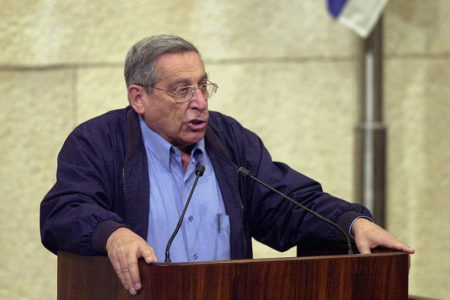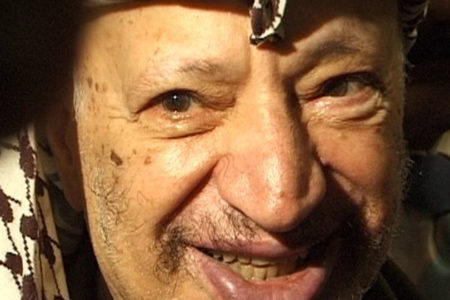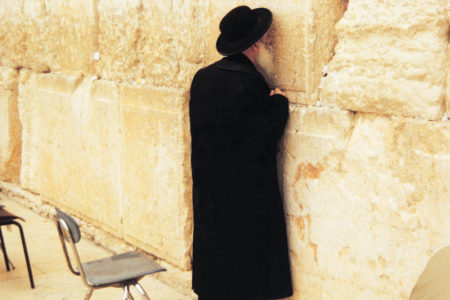Akiva: Ascension to Prominence
Joseph Akiva is known by Jewish people around the world as the famous Rabbi Akiva. Though he lived from A.D. 50 to 135, he is deeply revered among Jews today for his amazing insights and knowledge of Torah. He attracted such a huge following that he became known as “one of the fathers of the world.”1 His style of teaching through storytelling is so much admired today that rabbis still quote him often.
Rabbi Akiva undoubtedly rose to prominence for many reasons. However, three in particular stand out: his humility; his response to the help he received as he grew more educated; and the huge impact he made on Torah study, an impact felt to this day among Jewish students of Torah and Talmud. (The Talmud is the greatly revered, vast body of commentaries on the Torah [written law], plus what is called the oral law.) It was said that Rabbi Akiva “did for the oral law what Ezra had done for the written law.”2
His Humble Beginnings
Akiva belonged to the am ha’aretz(people of the land), not to the priestly tribe of Levi or the high priestly line. In fact, he was either the son or grandson of a Gentile convert.3 He had no formal education and earned his living by shepherding sheep. Yet Akiva’s lack of education was not a problem to him. Rather, he had little regard for the highly educated, saying, “Had I a scholar in my power I would maul him.”4 Akiva was an unlikely candidate to become a Torah scholar.
His Helper
Akiva worked for a wealthy landowner named Ben Kalba Savua. For some reason, Rachel, the landowner’s daughter, saw Akiva’s potential to become a great Torah scholar. One day she approached him with a proposition of marriage. Attached to it, however, was a condition. They would marry only if he would begin to study the Torah as soon as possible. Though caught off guard by the offer, the forty-year-old Akiva was intrigued. Rachel did not know Akiva’s disdain for scholars. As he pondered the proposal, he came across a natural pool containing a hollowed-out rock that rested on a waterfall. He began to reason, “If water, which is soft, can hollow out a stone, which is hard, how much more will the words of the Torah, which are hard, cut through and make an impression on my heart, which is soft.”5
The couple married despite opposition from Rachel’s father, who opposed the union because of Akiva’s low station in life. Ben Kalba Savua disowned both of them. Although undertaking intense Torah study was a Herculean task, Akiva began his quest by mastering the Hebrew alphabet. Slowly, yet thoroughly, his knowledge grew. Rachel was a constant, daily encouragement to him. Though life was difficult, she did all she could to help support the family, including selling her hair to bring in money. Eventually Akiva had to leave home to study under prominent rabbis. Rachel knew the importance of such a move and encouraged and persuaded him to go. He returned twelve years later as an ordained rabbi, the head of his own yeshiva (Jewish school), with twelve thousand students.6
The story is told that, as he returned home, he heard Rachel tell a neighbor she would “willingly wait another twelve years for Akiva to increase his learning twofold. He left immediately for another twelve years, not even showing himself to her.”7 When he returned the second time (a twenty-four year total), she ran to him and “prostrated herself at his feet. When his students moved to push her away, he restrained them saying, ‘All the Torah knowledge that I have, and all the Torah knowledge that you have, are the direct results of this woman’s love of the Torah.’”8 Akiva was acutely aware that his position as a great rabbi was only a reality because of the sacrifice and support of his wife, Rachel.
His Impact
Tannaim were learned men who interpreted and explained Torah and Talmud. According to Jewish tradition, God gave an oral, as well as written, law to Moses on Mt. Sinai. (Scripture does not support this position.) Over the years, many scholars have considered Akiva the greatest of the tannaim because he organized the Halacha (law) in an outline form. He drew up the six major divisions or areas that would be used as the template for Judah Ha-Nisi, the last of the tannaim, as the basis for what is known today as the Mishna.9
Akiva lived when Rome controlled Israel. Most of that time, the atmosphere was not conducive to Torah study. Many difficult years culminated in the destruction of the Temple in A.D. 70. By the time Hadrian became emperor, the Temple had been in ruins for fifty years. Hadrian’s rise to power brought temporary hope because, early in his rule, he desired to win the trust of his subjects. But hope died when he came to believe the Jewish people were not trustworthy; and he decreed it illegal to read and study Torah, as well as to observe the Sabbath. These “crimes” were punishable by death.
Persecution increased, and thousands of rabbis died. Asked by one of his students why he continued to teach and study Torah, Akiva replied in the form of a story:
To what is the matter like? To a fox who was walking along the banks of a stream, and saw some fishes gathering together to move from one place to another. He said to them, “From what are you fleeing?” They answered: “From the nets which men are bringing against us.” He said to them: “Let it be your pleasure to come on dry land, and let us, I and you, dwell together, even as my fathers dwelt with your fathers.” They replied: “Are you the animal who they say is the shrewdest of animals? You are not clever, but a fool! For if we are afraid in this place which is our life-element, how much more so in a place which is our death-element!” So also is it with us: If now, while we sit and study Torah, in which it is written, “For this is your life and the length of your days”(Dt. 30:20), we are in such a plight, how much more so if we neglect it?10
Rabbi Akiva possessed a unique capacity to laugh in the face of terrible circumstances. When the Roman legions were advancing toward them, the sages asked him why he was laughing:
“Idol worshipers dwell in peace and security, while the holy Temple is burnt to the ground . . . shall we not cry?”
“That’s why I’m laughing,” said Rabbi Akiva. “If this is how G-d rewards the Romans—who are so wicked and cruel—for the good deeds they sometimes do, how much more will be the reward of the righteous people in the World to come.”11
As the noose of Roman persecution tightened around the Jewish people, Hadrian ordered the ruins of Jerusalem rebuilt and dedicated to the Roman god Jupiter. A now very old Rabbi Akiva encouraged a revolt. Quoting from Numbers 24:17 (“There shall come a Star out of Jacob, and a Scepter shall rise out of Israel, and shall smite the corners of Moab, and destroy all the children of Sheth”), Akiva pronounced Simon bar Koseba, known for his strength and courage, as messiah. Bar Koseba became known as Simon Bar Kochba (son of a star).
At first Bar Kochba seemed successful, but the rebellion soon turned to disaster. More than 500,000 Jewish people were killed and one thousand villages destroyed. Jerusalem was rebuilt—not by the Jews, for the Jews—but by the Romans as a Roman city called Aelia Capitolina. It was then that Israel began to be called “Palestina,” a practice still used today.
Rabbi Akiva, in his eighties, was captured and flayed alive. Even as he was tortured, he reportedly laughed:
All my life I’ve been waiting to fulfill the concept “You shall love Hashem [literally, “the name”; a reference to the Lord] your G-d, with all your heart and with all your soul . . .“ and now I finally have the chance.12
Rabbi Akiva holds a place of greatness among the Jewish people because he was “great in Torah, great in love of Hashem, great in ‘Emunah,’ ‘Belief,’ in the Almighty, and great in appreciation of and devotion to his wife.”13
As Christians, we don’t recognize oral law as inspired from God. Yet Christian Bible students have sometimes gained fresh insights to Old Testament texts through Rabbi Akiva’s commentary.
His quest to know Torah, begun at age forty, demonstrates that one is never too old to begin studying the Word. And his faithful Rachel demonstrates the importance of a wife who believes in her husband.
But most important, Rabbi Akiva’s life also demonstrates that intelligence, sincerity, and dedication are not the ingredients required to identify the Messiah of Israel. Reading God’s Word, trusting in the plain meaning of Scripture, and believing it are the essentials. Rabbi Akiva looked to a false messiah because he allowed the terrible conditions of his day to cloud his thinking. Eternity and our place in it hang in the balance; therefore, it is crucial we look to the truth.
ENDNOTES
- “Akiva,” Encyclopedia Judaica, Macmillan, 1971, p. 489.
- Gilbert and Libby Klaperman, The Story of the Jewish People, 2, Behrman House, Inc., New York, 1957, p. 155.
- Jewish Encyclopedia, Macmillan, p. 487.
- Ibid.
- Rabbi Joseph Telushkin, Jewish Literacy, William Morrow and Company, Inc., New York, 1991, p. 143.
- “Elul: A Time to Reflect,” “Rabbi Akiva, Master of Teshuvah,” [www.ou.org/chagim/elul/akiva.htm].
- Jewish Encyclopedia, 487.
- “Elul: A Time to Reflect.”
- Klaperman, p. 174.
- Telushkin, pp.143-144
- “And Rabbi Akiva Laughed,” [www.ohr.org.il/special/9av/3weeks.htm], OhrSomayach,
- Ibid.
- “Elul: A Time to Reflect.”







